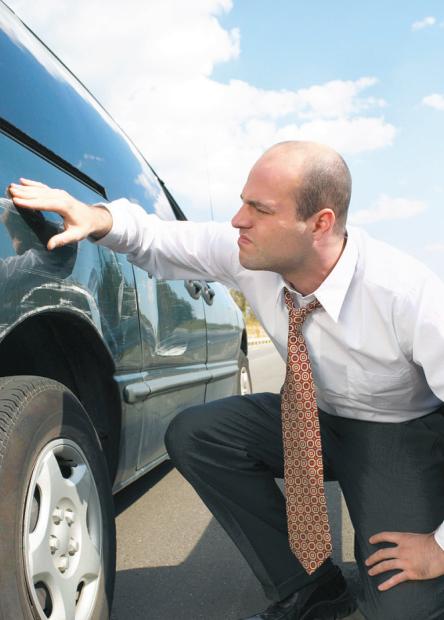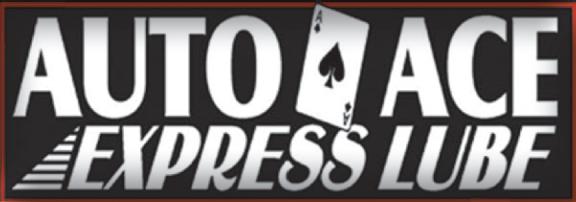
6 minute read
The benefits to car loan preapproval Things to consider before buying an extended warranty
When purchasing a new vehicle, many people choose to finance their purchases. Much like buying a house, financing a vehicle requires buyers to produce a down payment and then make monthly payments on the vehicle until the balance of the loan has been repaid in full. Financing is a must for many consumers, who otherwise could not afford to purchase a new or reliable preowned vehicle. And just like prospective homeowners can benefit from being preapproved for loans before they begin searching for a new home, auto buyers also benefit in various ways from getting preapproved for a car loan before they begin their search for their next set of wheels.
Preapproval smooths out the negotiation process. Few people enjoy haggling with car salesmen over the price of a new or preowned vehicle, and that process is even more difficult when buyers aren’t entirely sure of how much money they have to spend. When financing your vehicle with a preapproved loan, however, the process of negotiation can go much more smoothly, as you and the salesman know you only have a predetermined amount of money to spend. Ask the price to get the car off the lot, and then you can negotiate from there if you feel it necessary.
Preapproval cuts back on time spent at the dealership. A car dealership’s finance and insurance office is where buyers sit once they have told the salesman they want to buy the car and finance their purchase. Those who have not been preapproved often must sit through a sales pitch in this office or sit patiently as the salesman goes back and forth with the finance manager as you negotiate the final cost of the vehicle. However, when you have been preapproved for a loan, no such back and forth needs to take place, and you can cite your preapproval as a reason you don’t want to commit to the extra add-ons that many dealers attempt to sell their buyers.
Preapproval means the car is yours when you take it off the lot. Dealers are sometimes too quick to put keys in a buyer’s hand, and buyers with poor credit sometimes are allowed to drive a car off the lot only to find out days later that the lender rejected their application, at which time they must return the vehicle or return to the dealership to apply for a new loan, which will almost certainly come with a higher interest rate. Preapproval allows buyers to avoid this frustrating and sometimes embarrassing process.
Preapproval reduces the risk that you will overspend. Many a new or preowned car buyer has fallen in love with a vehicle and spent more than they should have to make the car their own. Preapproval greatly reduces the chances of this happening, as you know before you begin your search that your lender will only approve a loan for so much money. This can help buyers stick to a budget and avoid buying a car they can’t afford.
Bumper-to-bumper factory warranties can protect motorists should their vehicles experience any problems in the initial years after the car was purchased. Such warranties typically expire after three years or roughly 36,000 miles, whichever comes first. Once that warranty has expired, vehicle owners must then finance the cost of any problems that arise on their own.
But many drivers purchase extended warranties to provide further protection once their bumper-to-bumper manufacturer warranties have expired. Much like the initial warranty, an extended warranty can help drivers withstand the costs of repairs, and many drivers purchase such warranties before they even drive their new car off the lot, as the cost of an extended warranty purchased after the initial warranty has expired is typically a lot more than it would have been had it been purchased at the same time as the vehicle. But while an extended warranty is, in theory, a great idea, such extra protection is not necessarily for everyone, and there are some things car buyers should consider before buying an extended warranty.
Length of ownership: If you are a driver who typically buys a new car every few years or once the odometer hits the 40,000 mile marker, then an extended warranty likely is not worth the investment. Unless you plan to put lots of miles on the car during the three years you intend to own it, then you won’t need the extended warranty because you are less likely to own it by the time that warranty goes into effect. In addition, since many manufacturer warranties are in effect until the car exceeds 36,000 miles, it’s probably worth the risk to avoid buying the extended warranty just so you’re covered for the few thousand miles the car will no longer be under the manufacturer warranty
Backer: Who is backing the extended warranty is another factor car buyers must consider before adding the extra protection. A manufacturerbacked extended warranty is typically your safest bet, as you can take the vehicle into any of that manufacturer’s dealerships across the country and have your warranty honored. A third-party warranty may insist the vehicle is taken into the dealership where you purchased the car, a big negative for anyone who might be moving while they own the vehicle and an ever bigger cause for concern if you are not a fan of the maintenance staff where you purchased the vehicle.
Coverage: All extended warranties are not the same, and it’s important that you understand the differences between your options before purchasing a warranty. Many extended warranties are tiered, which means some will offer you the moon while less expensive options are far more limited in terms of what they do and do not cover. Carefully read the fine print of each extended warranty offered to you to be certain you are getting what you want for the price you want to pay.
Cost: When buying a car, you don’t need to buy an extended warranty from the same person who sold you the car. In fact, dealerships may compete for your extended warranty business. Ask the finance manager where you are buying the vehicle to quote you a price on their extended warranty offerings, and then take that price to the dealer’s competitors until you find a better deal. You may or may not find a better deal, and if you do you can always take that deal back to the dealer who sold you the car and ask that dealership to match the price. If they won’t, simply take the best offer you found from another dealer.
Personal history: Your personal history also can provide valuable insight into whether or not an extended warranty is right for you. If you are a driver who strictly adheres to manufacturer maintenance schedules and drives defensively, then you may not need an extended warranty since your car likely won’t be in need of significant repairs. But if vehicle maintenance is not high on your priority list or if you live in a place where traffic is often congested and your risk of accident is greater, then an extended warranty is likely a wise investment.
Extended warranties can provide peace of mind to motorists worried about the potentially costly expense of automotive repairs. But such extra protection is not always in a driver’s best interests.
There is seemingly no end in sight with regard to the rising costs of owning an automobile. From the cost of the car or truck itself to the high prices of fuel, drivers increasinglyare on the hunt for ways to curtail the costs of owning an automobile. One way to save some cash is to take advantageof auto insurance discounts youmay be eligiblefor.
Auto insurance company fulfillment is at record high. However, manydiscounts may still be available,even if driversor their agents may overlook them. Fierce competition among insurance providers continually addstothe bevy of new discounts manyare willing to offer to woo newcustomers
According to Bankrate.com,which looked at the discounts offered by auto insurance companies, many companies now offer new discounts to remain competitive. If youhaven’tshopped around forautoinsurancerecently or havenot revisited your current policy, you may be missing outonsubstantial savings.
Daytime running lights: Four outofthe 10 largest auto insurance companies now offer discountsifyour vehicle has daytime running lights.
Low mileage: Don’t take the car out often? Suchhabits may earnyou a reward. Around 80 percent of the major insurancecompanies offer discountsfor low mileage. Theinsurance company may provide amileagetracking device that will reportbackthe actual miles driven to the company.




Grades: Check withyour insurance company if you haveastudent on the policy. Hisorher good grades may qualify you foradiscount.
Occupation: Your occupation also may entitleyou to adiscount on insurance. Insurance companies believe that people in certain occupations or those who spend alot of time on the road maybe lesslikelyto take risks. Find outifyour occupation qualifies.
Alumni associationsand clubs: Certain organizations have teamed with insuranceproviders to offer discounts to members. Therefore,ifyou areina fraternal group, acreditunion, an alumni association, or some otherorganization, you may eligible forcertaindiscounts.
Check with your insurance company for their affiliate groups, or contact the organization to whichyou belong for more information.
Multiple policies: Many insurance companies will offer adiscount if you group yourpoliciestogether into a bundle.Havinghomeowner insurance, auto insurance and life insurancethrough one company, for example,can earn you asubstantialdiscount.
Insurance companies have many other discounts availableifyou ask.For example, if your vehicle has an antitheft system or environmentally friendly components,you may be eligible fora discount. Customerloyalty, paperless billing, paying all yourbillatonce, being a current or former member of the military or if yourvehicle is anew modelyear also may makeyou eligiblefor discounts that can drastically reducethe cost of your policy.







